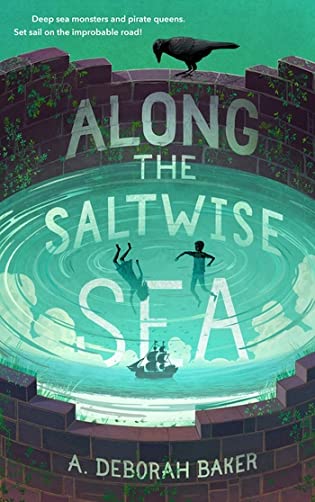 Along the Saltwise Sea (The Up-and-Under, #2) by A. Deborah Baker
Along the Saltwise Sea (The Up-and-Under, #2) by A. Deborah Baker Format: eARC
Source: supplied by publisher via Edelweiss
Formats available: hardcover, ebook, audiobook
Genres: fantasy, portal fantasy, young adult
Series: Up-and-Under #2
Pages: 208
Published by Tordotcom on October 12, 2021
Purchasing Info: Author's Website, Publisher's Website, Amazon, Barnes & Noble, Kobo, Bookshop.org
Goodreads
For readers of Kelly Barnhill and Cat Valente's Fairyland books, adventure and danger lurk Along the Saltwise Sea in this new book by Seanan McGuire's latest open pseudonym, A. Deborah Baker.
Be sure to explore the myriad wonders that can be found Along the Saltwise Sea.
After climbing Over the Woodward Wall and making their way across the forest, Avery and Zib found themselves acquiring some extraordinary friends in their journey through the Up-and-Under.
After staying the night, uninvited, at a pirate queen’s cottage in the woods, the companions find themselves accountable to its owner, and reluctantly agree to work off their debt as her ship sets sail, bound for lands unknown. But the queen and her crew are not the only ones on board, and the monsters at sea aren’t all underwater.
The friends will need to navigate the stormy seas of obligation and honor on their continuing journey along the improbable road
Writing as A. Deborah Baker, New York Times bestselling and award-winning author Seanan McGuire takes our heroes Avery and Zib (and their friends Niamh and the Crow Girl) on a high seas adventure, with pirates and queens and all the dangers of the deep as they continue their journey through the Up-and-Under on their quest for the road that will lead them home....
Welcome to a world of talking trees and sarcastic owls, of dangerous mermaids and captivating queens in this exceptional tale for readers who are young at heart in this companion book to McGuire's critically-acclaimed Middlegame and the sequel to Over the Woodward Wall.
My Review:
Childhood is not nearly so safe as we like to imagine. Safety, after all, is a bit of an illusion, and there are entirely too many children in situations that make it unsafe to be a child. Whatever the adults around them might think.
 In their own ways, at the beginning of the first book in The Up-and-Under series, Over the Woodward Wall, Avery and Zib both believed they were more or less safe, although their beliefs about exactly what constituted safety were as opposite as opposite could be.
In their own ways, at the beginning of the first book in The Up-and-Under series, Over the Woodward Wall, Avery and Zib both believed they were more or less safe, although their beliefs about exactly what constituted safety were as opposite as opposite could be.
But then, so were they. Avery loved rules and order while Zib loved adventure. Avery was polite and well-behaved. Zib was a force of nature. Avery’s parents were all about a place for everything and everything in its place. Zib’s parents were either indulgent or neglectful, depending on one’s perspective. Avery’s parents would say that Zib’s parents were extremely neglectful, and would never have let Avery associate with a girl they would see as wild and untamed.
When Avery and Zib went Over the Woodward Wall into the Up-and-Under, their adventures cemented this unlikely pair into a solid unit against a world that seemed determined to swallow them up and NOT spit them out. Ever.
At least, not as they were. Although time will do that anyway, whether or not one travels the Improbable Road through the Up-and-Under in search of a way home.
Escape Rating B: If you loved Over the Woodward Wall, and I very much did, it is just lovely to be back in the Up-and-Under, this less safe and even less logical amalgam of Wonderland and Narnia and every other world opened up by a child’s portal, with Avery and Zib and their friends Niamh and the Crow Girl.
As much as I loved being with them again, this feels like not so much a new adventure in their journey on the Improbable Road to find the Queen of Wands as it does a bit of a stop along the way.
Their sojourn on the pirate ship is interesting but the ship isn’t going anywhere and as long as they are aboard her, neither are they. It’s a bit of a rest stop, with a roof over their heads, somewhat comfortable beds to sleep in and no worries about regular -and delicious – meals.
 But very little happens – at least until the very end when suddenly a lot happens all at once, a bit of how the world works gets explained, and the Improbable Road finds them again and whisks them off to more adventure.
But very little happens – at least until the very end when suddenly a lot happens all at once, a bit of how the world works gets explained, and the Improbable Road finds them again and whisks them off to more adventure.
So if you’re already into this world, this is a lovely little trip back. If you’ve not yet been, start with Over the Woodward Wall. If you love the author’s Wayward Children series, or if you got fascinated with the bits of The Up-and-Under that were revealed in Middlegame, you’re in for a treat.
I’ll be looking forward to Avery and Zib’s next adventure. After all, they haven’t found the Queen of Wands yet – or the road that will lead them home.

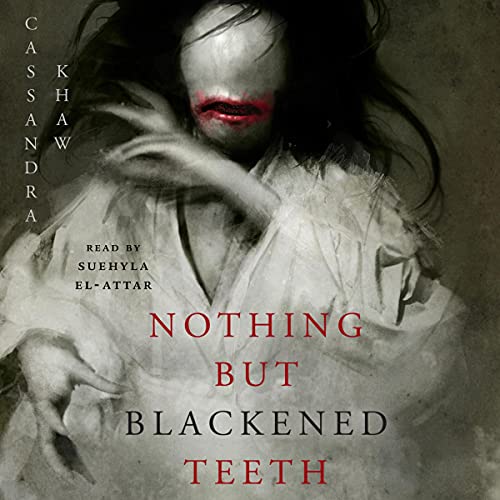 Nothing But Blackened Teeth by
Nothing But Blackened Teeth by 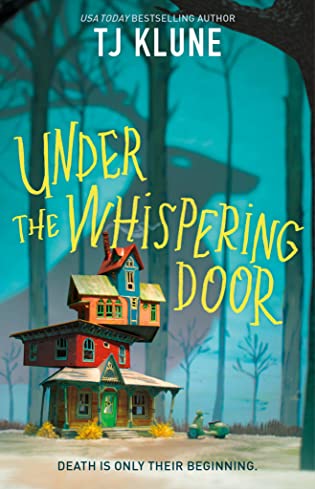 Under the Whispering Door by
Under the Whispering Door by  One final set of thoughts. This is being marketed as fantasy because of the author’s previous work in the genre, like the lovely
One final set of thoughts. This is being marketed as fantasy because of the author’s previous work in the genre, like the lovely 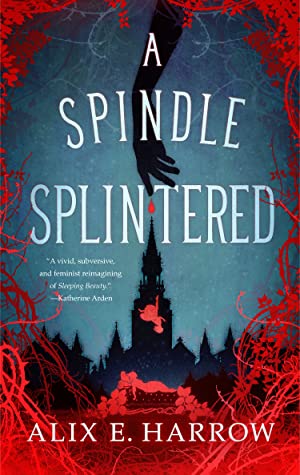 A Spindle Splintered (Fractured Fables, #1) by
A Spindle Splintered (Fractured Fables, #1) by 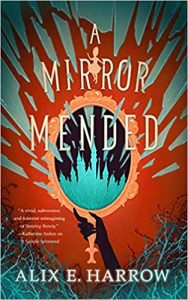 And it’s wonderful – especially when all the Sleeping Beauties carry off the princess and save the day, not just for her, but for each other as well.
And it’s wonderful – especially when all the Sleeping Beauties carry off the princess and save the day, not just for her, but for each other as well. Gutter Mage by
Gutter Mage by  Beneath the Sugar Sky (Wayward Children, #3) by
Beneath the Sugar Sky (Wayward Children, #3) by  I have read the
I have read the 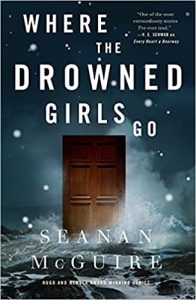 Escape Rating A-: I picked this up now because I read
Escape Rating A-: I picked this up now because I read 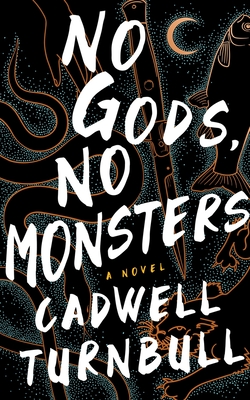 No Gods, No Monsters (The Convergence Saga, #1) by
No Gods, No Monsters (The Convergence Saga, #1) by 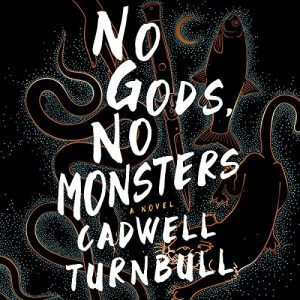 Speaking of perspectives, at least in the audiobook that I listened to they blurred into each other just a bit. The reader was good, and if his voice was intended to represent the unreliable narrator we begin and end the story with, he does a good job of representing that particular voice. But this story has a LOT of voices, all of whom are unreliable to one degree or another – some because they don’t know what they don’t know, and some because they don’t want to know what they don’t know – and the audio might have worked a bit better if there had been a few more narrators to help the listener keep track.
Speaking of perspectives, at least in the audiobook that I listened to they blurred into each other just a bit. The reader was good, and if his voice was intended to represent the unreliable narrator we begin and end the story with, he does a good job of representing that particular voice. But this story has a LOT of voices, all of whom are unreliable to one degree or another – some because they don’t know what they don’t know, and some because they don’t want to know what they don’t know – and the audio might have worked a bit better if there had been a few more narrators to help the listener keep track.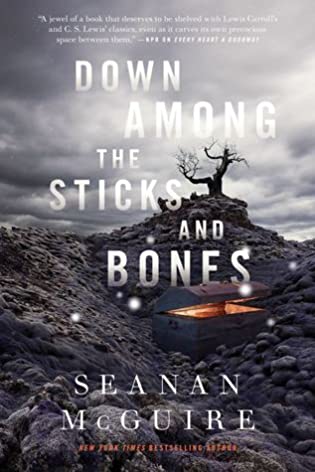 Down Among the Sticks and Bones (Wayward Children, #2) by
Down Among the Sticks and Bones (Wayward Children, #2) by  Escape Rating A-: Jack and Jill Wolcott are just two of the Wayward Children that we met in
Escape Rating A-: Jack and Jill Wolcott are just two of the Wayward Children that we met in 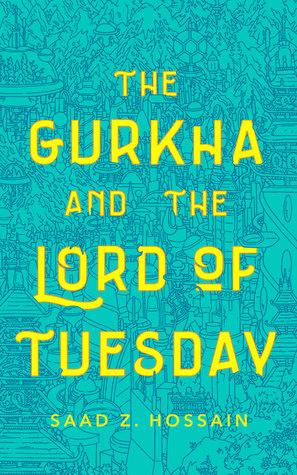 The Gurkha and the Lord of Tuesday by
The Gurkha and the Lord of Tuesday by 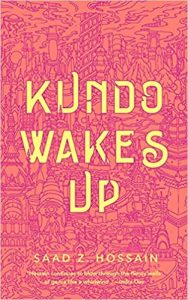 Escape Rating A: This is a book that has repeatedly popped up for me as a possible read, but hadn’t quite leapt to the top of the TBR pile. But in this week of constant doomscrolling, it suddenly seemed like the time.
Escape Rating A: This is a book that has repeatedly popped up for me as a possible read, but hadn’t quite leapt to the top of the TBR pile. But in this week of constant doomscrolling, it suddenly seemed like the time.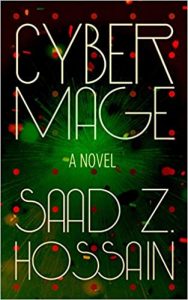 There have been a few books in the last couple of weeks where the sum of their individual parts did not manage to equal up to a whole. Take
There have been a few books in the last couple of weeks where the sum of their individual parts did not manage to equal up to a whole. Take 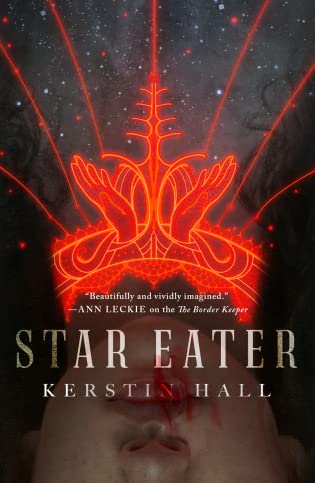 Star Eater by
Star Eater by  Escape Rating C+: This story is a hot mess and so is its protagonist Elfreda Raughn. And the story is not nearly as high-falutin’ or well-put together as the blurb would lead one to believe.
Escape Rating C+: This story is a hot mess and so is its protagonist Elfreda Raughn. And the story is not nearly as high-falutin’ or well-put together as the blurb would lead one to believe.